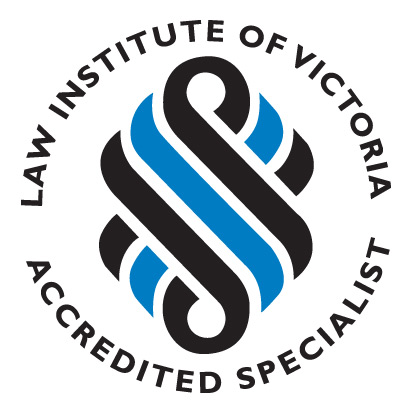On 1 May 2017 the Powers of Attorney Act 2014 (Vic) was amended by the Powers of Attorney Amendment Act 2016 (Vic).
The amending Act introduced changes to clarify some operational and other matters associated with the making of a power of attorney.
Further changes are forecast with the new Medical Treatment Planning and Decisions Act 2016 (Vic) which comes into effect in March 2018.
This article outlines some of the new and imminent changes and revisits the purpose of a power of attorney.
Primary and alternate attorney appointments
The Act now provides principals with greater flexibility when appointing alternate attorneys and / or supportive attorneys under an enduring power of attorney.
A principal may now appoint multiple alternate attorneys for any primary appointed attorney. A principal may also appoint one alternate attorney for multiple appointed attorneys.
The amended provisions essentially confirm that a principal is not restricted in the number of alternate attorneys he or she may appoint – before the amendments, the legislation provided only for an alternate attorney to be appointed on a one-to-one basis.
Revocation
The Act promotes consistency by making it clear that a new enduring power of attorney will revoke a previous enduring power of attorney in its entirety, unless a contrary statement is made in the new appointment.
Previously, the Act required that a new enduring power of attorney specifically state the intention to revoke a previously-made appointment, otherwise the new appointment would only revoke the previous one to the extent of any inconsistencies.
What is a Power of Attorney?
A Power of Attorney is a legal document that enables you to choose another person or persons to act on your behalf.
There are presently two categories – a General Power of Attorney and an Enduring Power of Attorney.
A General Power of Attorney is usually used for a specified period and / or for a certain purpose. For example, you may appoint an attorney to act for you if you are purchasing property and propose being overseas at the time the sale is finalised. Your attorney will be able to sign and act on your instructions which will be legally effective.
In Victoria, there are presently two types of Enduring Power of Attorney – unlike a General Power of Attorney, these continue to be effective after the principal becomes incapacitated.
An Enduring Power of Attorney (financial and guardianship) allows the attorney/s to deal with personal matters, financial and legal matters, or both and are often made between spouses enabling one to continue with the daily management of personal and financial affairs if the other is unable to. Alternatively, an elderly parent may appoint a child or children as the attorney or an alternate attorney.
The other type is an Enduring Power of Attorney (Medical Treatment) which allows the attorney to make decisions about the principal’s health treatment.
Further changes on the horizon – Advance Care Directive
The Medical Treatment Planning and Decisions Act 2016 (Vic) comes into effect on or before 12 March 2018 and will replace the existing Medical Treatment Act 1988 (Vic).
New laws will allow people to make a legally recognised Advance Care Directive and to appoint a medical treatment decision maker.
In the absence of such an appointment the new Act will determine who has legal authority to make such decisions – generally this will be the person’s domestic partner.
A person will no longer make an Enduring Power of Attorney (Medical Treatment) document however an existing appointment will still be recognised under the new laws. The present laws however do not allow for the inclusion of the principal’s wishes with respect to advanced care planning. This will change with the new laws.
An Advance Care Directive may include directives with legally binding instructions about future treatment to which you may consent or refuse, and a values directive outlining your values and preference with respect to future medical treatment. The Act will also allow the appointment of a support person to assist and to help communicate a principal’s decisions with respect to medical treatment.
What do I need to do?
Planning for the inevitable is essential to ensure the ongoing management of your personal, medical and financial affairs are conducted in accordance with your wishes.
A Power of Attorney enables you to appoint one or more persons you trust to handle your legal affairs for a limited period in planned circumstances. An Enduring Power of Attorney will help to ensure that your affairs are handled as you would want them to be, should you lose mental capacity.
If you already have a Power of Attorney or an Enduring Power of Attorney the new changes will not affect the validity of these documents. If, however, you would like to review the appointment of your alternate attorneys, we invite you to contact us.
The requirements for the creation of an Advance Care Directive and the appointment of a medical treatment decision maker are yet to be confirmed. With the new laws soon to be implemented however, you may wish to book a future appointment to discuss your requirements.
If you or someone you know wants more information or needs help or advice, please contact us on (03) 9592 3356 or email office@citypacific.com.au.


